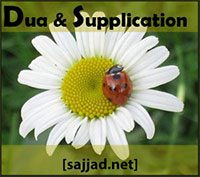Beautiful Morning Dua from the Prophet (PBUH)
We have entered the morning upon the natural disposition of Islam, upon the word of sincerity, upon the religion of our Prophet Muhammad (peace and blessings be upon him), and upon the way of our forefather Ibrahim — inclining toward truth, a Muslim — and he was never among the polytheists. أَصبَحْنا على فِطرةِ الإسلامِ، […]
Beautiful Morning Dua from the Prophet (PBUH) Read More »
